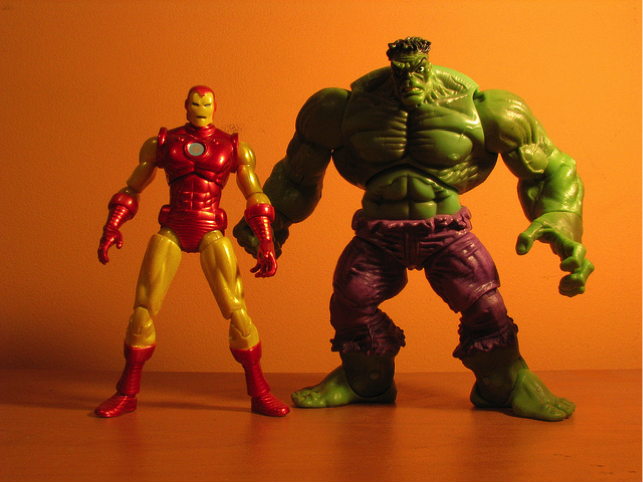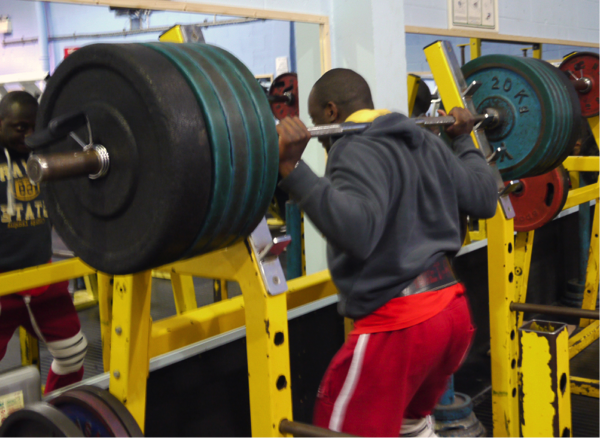
When did men become as fussy about their looks as women? Since marketers have scoped in on us as a buying audience, that’s when. The multi-billion dollar health and fitness industry found our vulnerable spots, and they’ve targeted us expertly. Men buy in for costly gym memberships and nutrition formulas, we get our eyebrows “done,” and we even pay for cosmetic surgery. Don’t get me started about specially conditioned beards and man buns. Marketers have successfully sold us thru body shame.
As much as the focus on body image marketing centers on teen girls, boys are increasingly effected. Dr. Bennett’s How to Spot Marketing: Red Flags Supplement is designed for parents of any child to recognize the signs of dangerous marketing. In media we often see images that insinuate how men should look and what products we need to buy in order to get the job, the fortune, or the girl. Every man wants to be a stallion. When other men threaten our image, we want to improve. How is the 2016 man affected by shame?
Six-Packs Everywhere
We are in the era of the six-pack. Abdominal bulging is everywhere; in supplement commercials, movies, toys, and advertisements. Consider the multi million-dollar movie, Twilight. Millions flocked to theaters to gawk at Taylor Lautner’s stellar abs (#TeamJacob). Let’s face it, it wasn’t his intellect or dazzling wolf battle strategies that made the ladies swoon. And I’m embarrassed to say that when I saw the movie, I felt extremely self-conscious about my baby belly.
I’m not alone. Research has demonstrated that muscular male figures in the media cause body dissatisfaction in men (Leit, 2002). The hundreds of images we see on our screens everyday of six-packed actors and models make us feel inferior. Despite the realization that those types of bodies are only attainable with digital enhancement, dietary supplements, or extraordinary fitness programs, we aspire to it and feel disheartened when we fail to measure up.
“Do You Even Lift Bro?”
Sorry to break it to you ladies, men are not becoming sexier to impress you. It is often about, “Do you even lift Bro?” We are constantly competing with each other. No guy has ever said, “I am going to do an extra squat, because the ladies are digging tight butts.” It is all about the pressure to lift more than the guy next to you. And frankly, it doesn’t hurt that the ladies are attracted to the dominant male in the room. The best compliment is a beautiful woman purring about how strong we look.
You Too Can Look Like This
Unfortunately, our quest for strength and fitness does not always lead us to healthy choices. Many men use expensive and untested fitness supplements to speed up the muscle-building process. Some powder proteins already have enough ingredients that are bad for your body, and some men are using it in combination with steroids. When I go to the gym, I often see these steroid using pretty boys. I myself have used protein and been tempted to use steroids to gain faster results. Luckily I never have and never will, but the pressure is always there.
Increasing numbers of men are so concerned about their appearance that they develop a psychological condition called muscle dysmorphia (Mosley, 2009). This is when a man sees himself thinner and weaker than he actually is. He begins to hit the gym and use substances to gain more mass, but he will never get there because he sees a delusional result in the mirror. He focuses so much on attaining his ideal image that he begins to put everything aside to hit the gym. This disorder is fairly new and there are no clear estimates of how many men are affected (Choi, Pope, & Olivardia, 2002).
 My Classmates Changed Me
My Classmates Changed Me
Body shaming can start young but peaks during the vulnerable developmental period of adolescence. According to researchers Aslund, Starrin, Leppert, & Nilsson (2009), both males and females engage in body shaming, but they tend to do it differently. Males tend to be more directly aggressive, while females shame through passive aggressive means like gossip.
When I was in high school, I remember feeling shame because of the way I dressed and my physical appearance. I was smurf’s size and wore clothes out of fashion. Students would often attack me with bad remarks. In my senior year, I changed my appearance and grew a little more to become a larger smurf. People started to notice me and praise my better looks, and I even started to date girls. This made me care more about my appearance, because I did not want to be shamed again. My point is that shame can really change a man. Even though men want to appear tough, we are sensitive teddy bears on the inside.
How can we protect our sons from body shame?
-
Teach them to understand that we all have different body types. Obtaining a body that looks exactly like somebody else’s is impossible.
-
It is a good thing to want to be the best, but make sure that you are doing it for yourself and not for others.
-
Eating healthy and getting plenty of restorative sleep will earn the fastest and healthiest fitness results.
-
Before considering supplements, research their ingredients. Nothing beats a healthy diet and hard work.
-
Ensure you have a realistic understanding of what a “healthy” body actually looks like. That means a keen awareness that most images have been digitally enhanced.
-
Be vigilant not to body shame others with critical or hurtful comments.
-
Protect kids from frequent exposure to inappropriate images designed to sell products.
-
Set a healthy example of what is healthy and cool.
Remember, “SHAME IS LAME.” Because you are an extraordinary parent, you won’t want to miss, The Secrets to Happiness and the Creation of GetKidsInternetSafe, It’s an awesome personal blog written by Dr. Tracy Bennet. She is an extraordinary person willing to help those in need.

I’m the mom psychologist who will help you GetKidsInternetSafe.
Onward to More Awesome Parenting,
Tracy S. Bennett, Ph.D.
Mom, Clinical Psychologist, CSUCI Adjunct Faculty
GetKidsInternetSafe.com
Photo Credit
Angel by Samuele Cavadini, CC BY-NC-ND 2.0
Hulk by Claudio Montes, CC BY-NC 2.0
Ziggy Chima by Brett Jordan, CC BY 2.0
Self portrait- Got juice? By Mattys Flicks, CC BY 2.0
High school lockers by Daniel Scally, CC BY-NC-ND 2.0
References
Aslund, C. , Starrin, B. , Leppert, J. , & Nilsson, K. (2009). Social status and shaming experiences related to adolescent overt aggression at school. Aggressive Behavior, 35(1), 1-13.
Mosley, P. (2009). Bigorexia: Bodybuilding and muscle dysmorphia. European Eating Disorders Review : The Journal of the Eating Disorders Association, 17(3), 191-198.
Leit, R. , Gray, J. , & Pope, H. (2002). The media’s representation of the ideal male body: A cause for muscle dysmorphia?. International Journal of Eating Disorders, 31(3), 334-338.
Choi, P. , Pope, Jr, H. , & Olivardia, R. (2002). Muscle dysmorphia: A new syndrome in weightlifters. British Journal of Sports Medicine, 36(5), 375-377.
Don't worry, we will never spam you.














